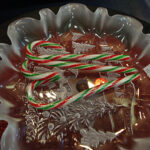Home »

Illegal dumping and misuse produce pilot project
By Stephanie Stevens
Abuse it and you could lose it.
In response to illegal dumping and general misuse of the transfer station in the Industrial Park in Invermere, the District of Invermere (DOI) is launching a pilot project July 4 to provide supervision and education to those using it.
Two temporary employees will be at the transfer station for July and August, Thursdays to Mondays to not only ensure proper usage, but also to collect data for the DOI in regard to who is using it.
The transfer station will also have reduced hours, from its current 24 hours per day, seven days per week to five days per week from 7 a.m. to 7 p.m. The station will be closed Tuesdays and Wednesdays and the number of available bins will be reduced tom 17 to 10 or 11.
DOI Chief Administrative Officer Chris Prosser explained to council at their regular scheduled meeting June 11 that not only is there illegal dumping occurring (large items like hot water tanks, televisions, old furniture etc.) construction waste is being dumped, all of which should be taken to the Windermere Landfill.
As the bins are bear proof, the bins are also not being filled to capacity, resulting in cost to the taxpayers with unnecessary emptying. Having employees onsite to help direct users to bins that still have room should ensure they are filled properly.
“People have to push stuff back to fill it, and they aren’t doing that,” Prosser said. That results in bins having to be emptied before they are actually full. He added when the truck is called to empty one bin, all bins have to be emptied, resulting in further cost.
While the bins are located on DOI property, not all users are DOI residents.
The Regional District of East Kootenay does contribute to the cost of running the site to offset the cost of non-Invermere residents but collecting the data of who is using it and what part of the valley they are from will help the DOI determine those numbers more accurately.
Coun. Ute Juras said it was good to note that money for the project is not coming out of taxpayers’ wallets, but rather from the Environmental Reserve Fund, and in the end, she hopes the project will pay for itself.
With less illegal dumping, proper usage and bins actually being filled properly, Coun. Gerry Taft added the labour costs could well be offset completely.
Mayor Al Miller added that there is an environmental responsibility component to the transfer station that not only should the DOI heed, but users as well.
“We need to be making sure the items being dumped should be dumped,” he said, adding that customer service will not only aid in that issue, but will be a bonus for senior residents who may have a hard time with the bear proof containers.
“I definitely think there will be a costs savings with this program,” Miller said.
Prosser said at the end of the pilot project, council will have three options to choose from: continued supervision via the staffing, remaining with the status quo of being open 24/7, or closing the transfer station completely and expanding the curb-side program.
Lead image: An example of the state of affairs at the Transfer Station, prompting the DOI’s action. Stephanie Stevens Photo
e-KNOW







